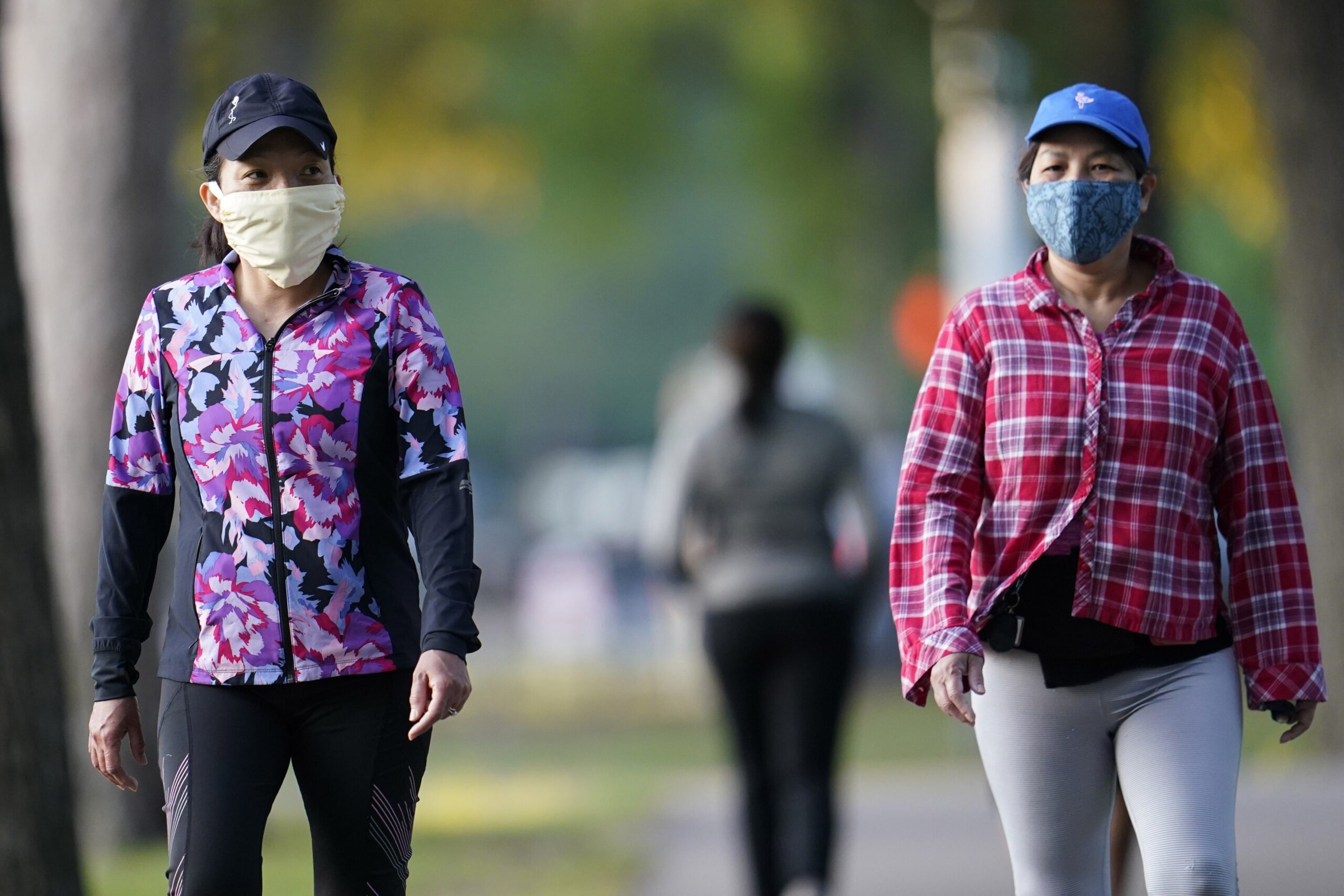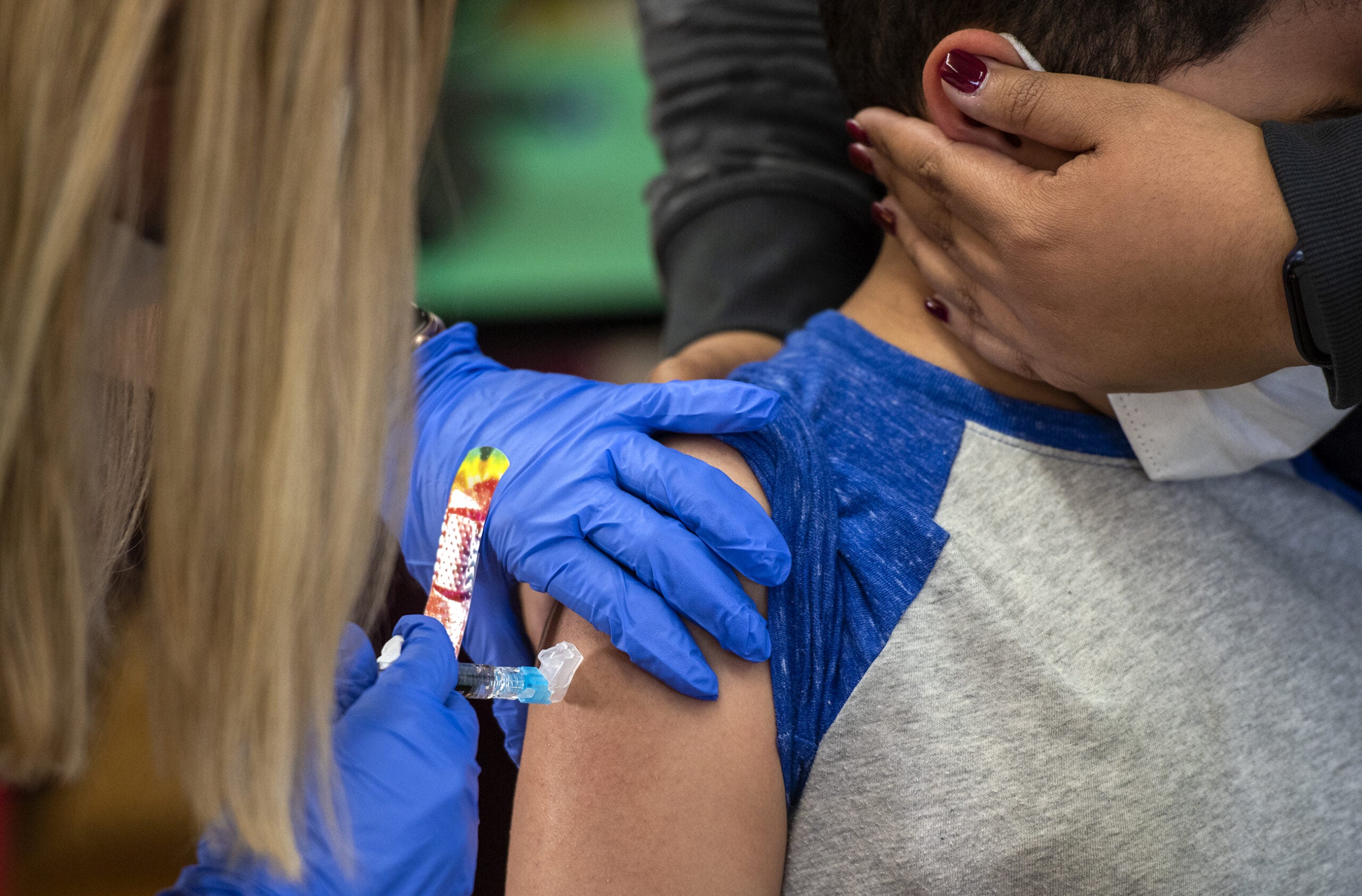Wisconsin’s residents have been encouraged to practice social distancing since mid-March, which to many may already seem like a long time. But according to the president and CEO of the Medical College of Wisconsin, residents should anticipate at least 12 to 18 more months of social distancing to slow the spread of COVID-19.
Dr. John Raymond said during a Greater Milwaukee Committee meeting on Monday that Wisconsin has made tremendous progress flattening the curve of infections during the COVID-19 pandemic.
Despite ongoing shortages of personal protective equipment (PPE) that experts expect could be an issue for the next few months, Wisconsin’s hospital capacity is doing fairly well with the recent surge of cases.
News with a little more humanity
WPR’s “Wisconsin Today” newsletter keeps you connected to the state you love without feeling overwhelmed. No paywall. No agenda. No corporate filter.
“We’ve never exceeded the capacity of our healthcare systems to provide intensive care unit care to the sickest of patients,” Raymond explained. Which means Wisconsin will not exceed the capacity of our healthcare systems to provide care.
But as the state comes out of crisis mode, state officials are now tasked with responsibly reopening the state.
“Unless there is a very significant extinguishing of the virus — either by a vaccine or by a herd of immunity — it’s very likely to come back,” Raymond said. “We probably all need to get used to social distancing for the next 12 to 18 months until we hopefully have an effective vaccine. It’s likely that we’ll be living with COVID-19.”
Raymond predicted that there will be an increase in confirmed cases in the state because of a higher testing capacity and as the Badger Bounce Back plan — Gov. Tony Evers’ plan for reopening the state — goes into effect. Raymond praised the plan, saying it provides thoughtful framework to address the threats that COVID-19 presents to the health of Wisconsinites and the overall economy. According to Raymond, extending the state’s “Safer at Home” order provides flexibility for the Badger Bounce Back plan to work effectively.
“First of all we do need more testing. Secondly, we need our public health leaders to have the tools that they need for responsible surveillance and tracing, and we need our employers to be able to protect their employees and consumers, so we don’t revert back to crisis standards,” Raymond said.
Raymond added that residents need to know what it means to live and work responsibly during the COVID-19 pandemic.
“With the significant increase in the number of tests, the number of positive cases per day will grow,” Raymond explained.
Wisconsin had its five highest days of testing capacity last week.
The impact of the increase in testing can be minimized by simultaneously tracking the percentage of positive cases and the medical college plans to track the data going forward, according to Raymond.
Wisconsin Public Radio, © Copyright 2025, Board of Regents of the University of Wisconsin System and Wisconsin Educational Communications Board.







